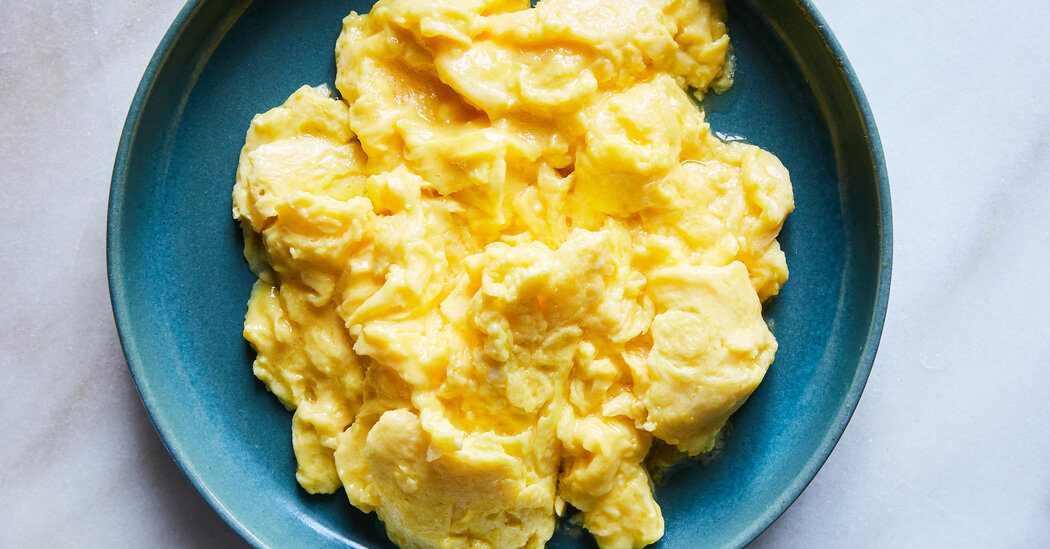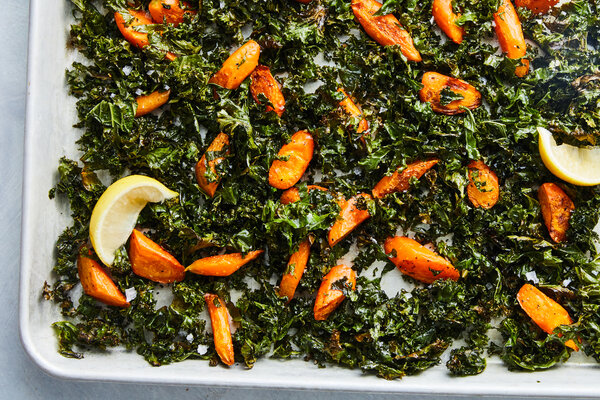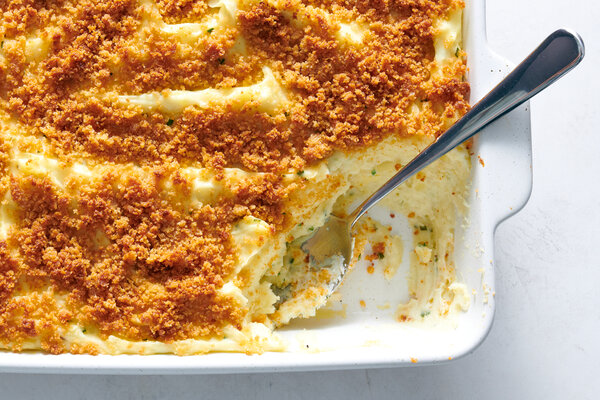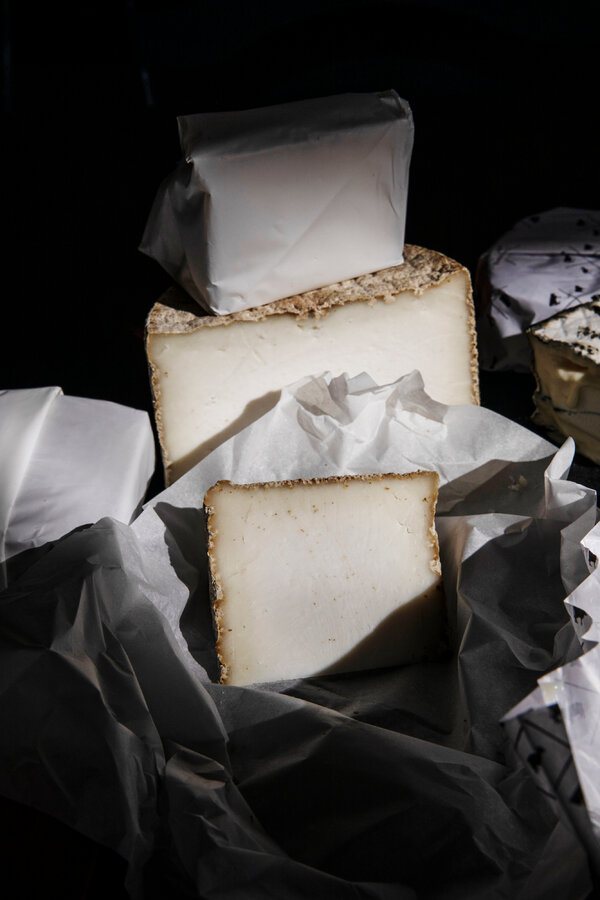In this column, Ask Kenji, the cookbook author Kenji López-Alt answers your questions. This week, he discusses the surprising science of salting scrambles.
Q. Should I add salt to scrambled eggs before cooking, during or after? — Ashley Allison, Chicago
A. “Don’t season it,” a young Gordon Ramsay warns in the viral video that has no-doubt landed his soft scrambled eggs on countless breakfast tables. Salt “breaks down the eggs” and turns them into “something very watery,” he says sternly, adding that salt should be added during the last moments of cooking. In a different scrambled egg tutorial, he claims that salt added too early will make the eggs “go gray.” Is he right? Will seasoning eggs before cooking them ruin them?
As with most simple questions, the answer can get quite complicated.
On Team Salt-Before-Cooking, we have both Julia Child in “The French Chef Cookbook” and Jacques Pépin in “Essential Pépin.” Daniel Boulud salts his eggs after cracking and straining them, but before cooking them in a double boiler. James Beard recommended beating the eggs with salt, pepper and Tabasco sauce before cooking them in butter. In his testing at Serious Eats, my friend Daniel Gritzer found the differences subtle, though he comes down on the salt-first side.
But Team Salt-at-the-End has its own heavy hitters. In his demonstration video, Marco Pierre White, Mr. Ramsay’s mentor, doesn’t add salt to his scrambled eggs until they’ve been in the pan for nearly four-and-a-half minutes. In her 1954 book, “The Art of Eating,” M.F.K. Fisher suggests “seasoning at the last stir or two” when making scrambled eggs, as Mr. Ramsey did.
For something that is relatively easy to test, the existing recommendations are maddeningly mixed.
Understanding Scrambled Eggs
What causes scrambled eggs to turn tough or watery in the first place? To find out, it helps to become familiar with their structure. Eggs are made up of about 76 percent water, 13 percent protein and 10 percent fat. In their raw, unbeaten state, these proteins are twisted tightly around themselves, like a bunch of charging cables you’ve carefully wound and zipped up in a pouch before a flight. Whisking those eggs is like letting those cables get jostled during turbulence. Their ends loosen, and they bump up against other cables and begin to get entangled.
When we then apply heat to those eggs, it’s like giving the pouch of cables to a toddler: The individual cables are unraveled, then twisted together, becoming a tangled ball. It’s this mesh of proteins that cradles the mixture of water, fat and air that makes well-scrambled eggs moist, flavorful and light. As those proteins continue to heat up in the pan, they contract tighter and tighter, squeezing out water, which evaporates as it hits the hot pan surface, leaving the scrambled eggs dry and tough. Even eggs that we manage to take out of the pan at exactly the right moment — when the curds glisten and quiver — can continue to cook, squeezing out water that pools on the plate.
The Experiment
In my 2015 book, “The Food Lab,” I ran a short series of experiments in which I salted beaten eggs before, during and after cooking, then compared their moistness and tenderness.
This time around, I decided to greatly expand my testing. I thoroughly beat several dozen eggs, then passed them through a fine-mesh strainer to homogenize them. I next divided these eggs into 150-gram batches (the equivalent of three beaten eggs). I then added 1.5 grams of salt immediately before cooking, up to four full days before cooking.
To ensure that the eggs were cooked in an identical manner, I heated a nonstick skillet to 300 degrees on an induction cooktop. I added ½ teaspoon vegetable oil and cooked each batch of eggs for exactly 28 seconds while gently stirring with a silicone spatula. I then set aside 50 grams of cooked eggs for tasting and transferred the rest to a fine-mesh strainer set over a bowl and allowed the eggs to drain for two and a half minutes.
The drainage test was quite revealing. For eggs salted a relatively short period of time before cooking, there was a direct correlation between salting length and moisture retained. Eggs salted just before cooking wept about a teaspoon of watery liquid as they rested, while eggs salted at least 15 minutes before cooking retained virtually all of their moisture.
As it turns out, salting your eggs can help mitigate wetness.
What’s happening?
The answer can be found in Harold McGee’s 1984 book “On Food and Cooking.” He explains that egg proteins naturally repel one another as a result of their electrical charges. As salt dissolves in water, it dissociates into negatively and positively charged ions that tend to cluster around the charged portions of the bundled egg proteins, simultaneously loosening them up and lowering their repulsion to one another. You can easily see this change with the naked eye: Compare the deep orange color and relatively translucent appearance of eggs that have been salted, beaten and rested for 15 minutes to the paler yellow of freshly beaten, unsalted eggs.
In their more uninhibited state, salted egg proteins tend to glom on to one another before individual proteins have even had a chance to fully unravel. The result is a protein matrix that sets up faster and at a lower temperature, but has a weaker overall structure.
Practically this translates to eggs that cook faster, are seasoned more thoroughly and are more tender and moist. All winning qualities in my book.
So should I salt even longer?
Things took a turn when I tried extending the salting period even further: 24 hours, 48 hours and up to 96. By 48 hours, salted, beaten eggs looked strikingly different: deep orange with a transparent layer floating on top, which I had to stir back in before cooking. In the pan, they behaved even more differently, very quickly tightening and coagulating before I had a chance to break up the curds. Breaking up that sheet of coagulated egg proved relatively difficult as well. The finished eggs were by far the toughest of the lot. (I may have been imagining it, Mr. Ramsay, but they also appeared to have a faint gray tinge to them.)
My hypothesis is that, as raw, salted eggs rest, their proteins continue to unravel until they’re entangling with neighboring proteins along their full lengths, not just their ends. This results in a tough, watery scramble that sets extra-firm, and at a lower temperature.
It all makes me wonder what the texture of eggs salted several days in advance, then cooked in a much cooler pan, would be like. (There is nothing so simple and pure in cooking that it can’t be ruined with a bit of overthinking.)
The takeaway
For the moistest, most tender scrambled eggs and omelets, I recommend salting and beating your eggs before cooking them. If you want your eggs even more tender and moist, let the salted, beaten eggs rest until they’ve noticeably darkened in color, about 15 minutes, before cooking them. (This is about how long it takes me to get the coffee and toast ready and table set.)
Or just salt them whenever you darn well please. So long as the salted eggs aren’t languishing in the fridge for multiple days, the difference is minimal.







